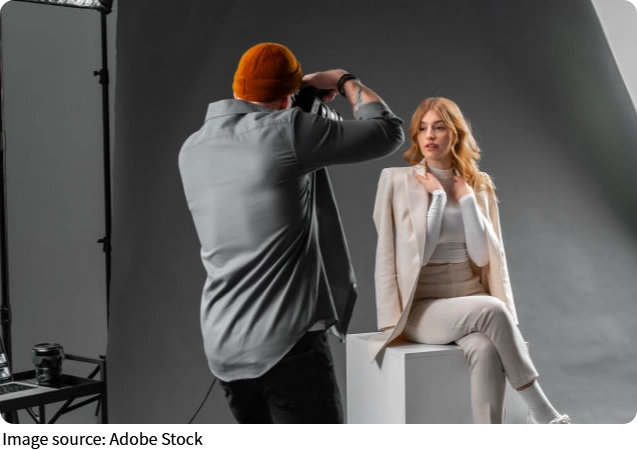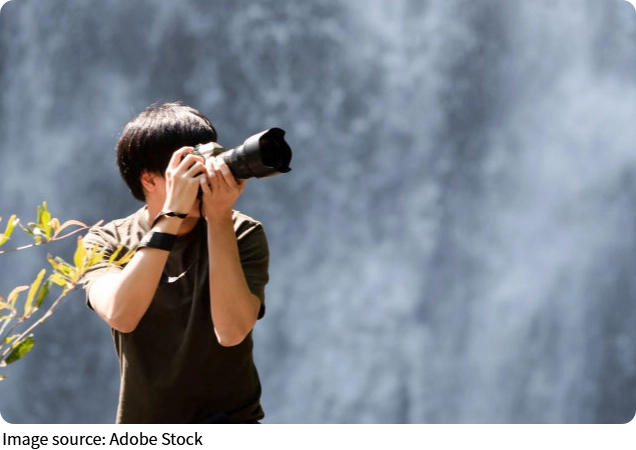Reflecting Identity

Have you ever wondered why people take self-portraits, or selfies, beyond just capturing a moment?
Self-portraits in photography are a powerful tool for exploring identity — who we are, how we see ourselves, and how we want to be seen.
This artistic practice extends far beyond casual social media posts. It invites us to reflect deeply on our inner selves, cultural backgrounds, and personal stories.
The Historical Roots of Self-Portraits
Long before smartphones, self-portraits were a way for artists to study and present themselves. Famous painters like Frida Kahlo used self-portraits to express pain, resilience, and identity.
In photography, pioneers like Robert Mapplethorpe and Cindy Sherman pushed boundaries by using self-portraits to challenge social norms and explore gender and identity. These works showed that self-portraiture is not just about capturing appearance but telling stories about identity.
Self-Portraits as Identity Exploration
Self-portraits allow individuals to experiment with how they present themselves to the world. By controlling lighting, pose, expression, and setting, photographers can highlight different facets of their identity — cultural heritage, emotions, personal struggles, or aspirations.
This process can be therapeutic and empowering, helping people understand and accept themselves more fully.
Many contemporary artists use self-portraiture to explore issues like race, gender fluidity, and mental health, challenging societal stereotypes and inviting viewers to rethink rigid identity categories.
The Role of Technology and Social Media
Today's technology, especially smartphones and editing apps, has made self-portraiture accessible to almost everyone. Social media platforms provide a global stage where individuals share self-images, shaping their digital identities.
This has created a complex interplay between authenticity and performance — are we showing the "real" self, or a curated version crafted for likes and validation?
According to research in psychology (APA, 2021), frequent self-presentation on social media can influence self-esteem both positively and negatively, offering opportunities for connection but also creating pressure to conform to idealized images.
Artistic Techniques in Self-Portraits
Creating meaningful self-portraits often involves more than snapping a quick photo. Lighting, composition, and props play crucial roles in conveying emotion and identity. For instance, natural light can produce softness and vulnerability, while harsh shadows might express conflict or intensity.
Experimenting with angles and focal points lets photographers highlight features that carry personal or symbolic significance. The use of costumes or makeup can transform identity, allowing artists to embody different roles or narratives within a single image.
Self-Portraits in Cultural Contexts
Self-portraiture is shaped by cultural background. In some cultures, it is a form of self-assertion. For example, indigenous photographers use self-portraits to reclaim narratives and challenge imperial imagery. In other cultures, self-portraits can explore family roles, traditions, and generational ties.
Understanding these cultural layers enriches the meaning behind self-portraits, reminding us that identity is complex and multifaceted.
Challenges and Ethical Considerations
While self-portraits empower self-expression, they also raise questions about privacy and self-representation. How much should individuals reveal? What about the influence of audience judgment? Photographers must navigate the fine line between vulnerability and protection.
In addition, the digital age presents risks such as image misuse or identity theft. Responsible sharing and awareness of these risks are essential for anyone engaged in self-portraiture today.
Conclusion: Your Identity, Your Image
Self-portraits are more than just images; they are a dialogue between who we are inside and how we communicate that to the world. They invite exploration, challenge norms, and celebrate uniqueness.
Whether you're a professional artist or someone who enjoys taking photos with a phone, self-portraiture offers a creative way to understand and express your identity.

Have you ever created a self-portrait that made you see yourself differently? What stories do your images tell about who you are? Feel free to share your thoughts and experiences!


